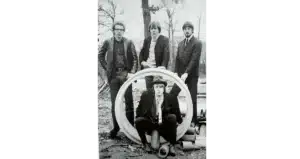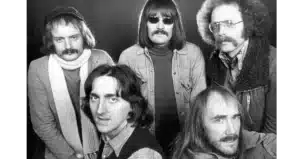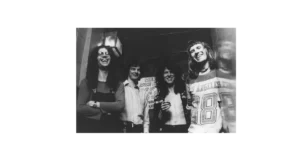Caravan: Poetic Visionaries of the Canterbury Sound
Origins and Formation
Caravan is a British progressive rock band formed in 1968 in Canterbury, Kent, and is one of the founding pillars of the Canterbury Scene — a unique branch of progressive rock known for its pastoral lyricism, jazz-influenced improvisation, and whimsical English humor.
The group was born from the ashes of The Wilde Flowers, a seminal band that also spawned Soft Machine. The original Caravan lineup included:
Pye Hastings – Guitar, vocals
Richard Sinclair – Bass, vocals
Dave Sinclair – Keyboards
Richard Coughlan – Drums
Together, these musicians forged a sound that was both delicate and adventurous, fusing psychedelia, classical-inspired progressions, and jazz-inflected grooves into something unmistakably their own.
Musical Style
Caravan’s music is a masterful blend of:
Melodic songwriting with a distinct English sensibility
Extended instrumental passages featuring lush organ, flute, and viola
Witty, surreal lyrics often laced with innuendo
Jazz-rock improvisation, particularly in their longer suites
While often compared to bands like Yes or Genesis, Caravan always retained a more chamber-pop charm, balancing technical complexity with emotional warmth.
Classic Albums and Highlights
If I Could Do It All Over Again, I’d Do It All Over You (1970)
Their second album, it combines playful songwriting with moments of deep musical exploration. The title track is a perfect example of Caravan’s ability to sound both fun and refined.
In the Land of Grey and Pink (1971)
Often cited as their masterpiece, this album is a cornerstone of Canterbury progressive rock. Side two features the 22-minute epic “Nine Feet Underground”, a swirling jam of Hammond organ solos and shifting moods. The title track and “Golf Girl” showcase their whimsical storytelling and gentle psychedelia.
Waterloo Lily (1972)
This album leaned more into jazz fusion, driven by Steve Miller’s piano and the band’s desire to stretch out instrumentally. Though divisive, it remains an important part of their evolution.
For Girls Who Grow Plump in the Night (1973)
A return to more structured songwriting, this album is filled with pastoral beauty and symphonic richness, with the introduction of Geoffrey Richardson on viola adding new colors to their sound.
Live at the Fairfield Halls, 1974
A stunning live recording that captures Caravan’s musical precision and energy on stage. Essential listening for understanding their improvisational skill.
Evolution and Longevity
Despite multiple lineup changes, Pye Hastings remained the heart of Caravan, guiding the band through several eras of evolution — from prog rock glory to soft rock flirtations in the late ’70s and ’80s, and ultimately to a respectful legacy revival in the 2000s and 2010s.
Albums like The Album (1980) and Back to Front (1982) saw the band shifting toward radio-friendly styles, but their core audience remained loyal. In later years, Caravan reunited for live shows and released Paradise Filter in 2013, continuing their journey with grace and dignity.
Legacy and Influence
Caravan’s influence lies not in chart domination, but in their subtle brilliance — they have been called “the quintessential English prog band”, beloved by musicians and dedicated fans alike.
Their balance of charm, complexity, and musicality has inspired generations of prog artists and remains a beacon of the Canterbury ethos: music that’s exploratory, intelligent, and emotionally engaging.
Interesting Facts
The Canterbury Scene label, though retroactively applied, describes the network of musicians from bands like Caravan, Soft Machine, and Hatfield and the North.
Richard Sinclair, a founding member, later became key in Hatfield and the North and Camel.
In the Land of Grey and Pink is often cited among the top 50 progressive rock albums of all time.
Caravan’s music has been sampled and covered by several modern artists, including those in the neo-prog and indie scenes.




